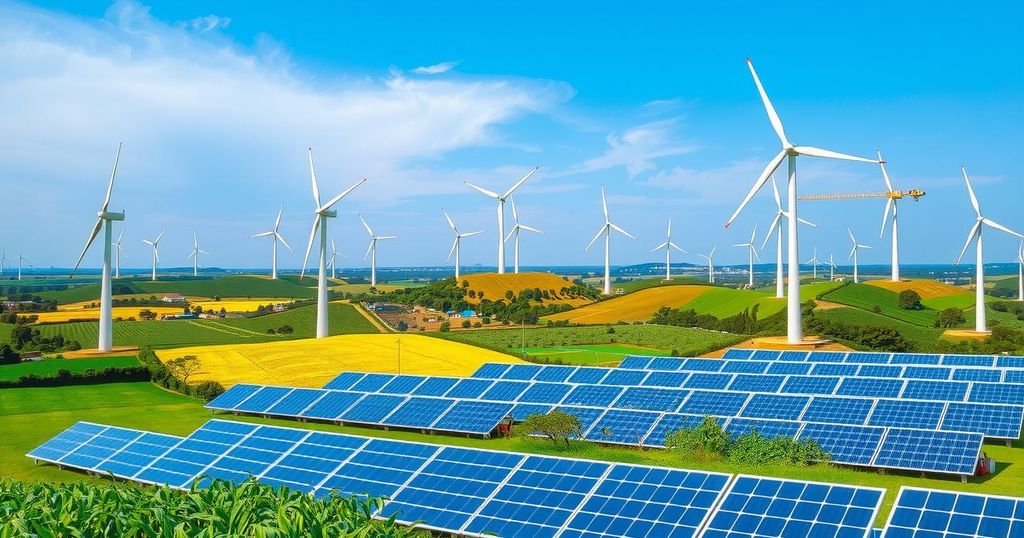Wärtsilä Reports on Nigeria’s Path to 100% Renewable Energy by 2060
Wärtsilä’s new report indicates that Nigeria can achieve a 100% renewable energy system by 2060. This requires 1,200 GW of renewable capacity, 283 GW of energy storage, and significant investments totaling $425 billion by 2060. The strategy emphasizes the use of domestic gas as a transitional fuel while aiming for universal electricity access by 2032. Policy reforms are essential to draw investments for this ambitious plan.
The global technology group Wärtsilä has published a report titled “Nigeria Leading Africa to Net Zero,” which outlines a clear roadmap for Nigeria to achieve a 100% renewable energy power system by 2060. As the nation aims to lead in climate action while addressing its growing energy demands, developing a cost-effective, data-driven energy strategy is critical. Wärtsilä employs advanced energy modeling techniques to identify the most economical power system capable of evolving to net zero by the target year.
According to the report, the optimal energy system for Nigeria would require a remarkable 1,200 GW of renewable energy capacity, alongside 283 GW of energy storage and 34 GW of engine-based power plants for grid balance. By investing in renewable energy and flexible gas engines, Nigeria can significantly decrease energy costs, enhancing energy access and improving grid reliability. The study predicts a remarkable 74% reduction in electricity generation costs by 2060 compared to 2022, alongside a complete elimination of carbon emissions.
In facilitating this transition, Nigeria’s domestic gas reserves will serve as a critical transitional fuel, aiding power balancing until gas engines are converted to operate solely on green hydrogen by the early 2040s. Wale Yusuff, Managing Director of Wärtsilä in Nigeria, states, “If the power system expansion roadmap presented in the report is successfully implemented, by 2060 Nigeria’s power system will be fully decarbonized and able to meet the energy needs of our country’s rapidly growing population.” Universal electricity access may be achieved by 2032, rendering current inefficient diesel generators obsolete.
However, the plan requires substantial investments estimated at $18.7 billion by 2030 and $425 billion by 2060. Wale Yusuff highlights that attracting such investments will necessitate significant policy reforms, noting, “Despite the many government efforts to implement an increasingly strong legal framework, project developers and sponsors must still navigate a very complex and uncertain system that adds excessive investment risk.”
Nigeria possesses the necessary resources for an efficient energy transition through its vast gas reserves and renewable energy potential. By enhancing its power transmission infrastructure, formulating an effective policy framework, and implementing a data-driven expansion plan focused on renewable energy, Nigeria stands to achieve universal access to affordable, reliable, and fully decarbonized electricity.
Wärtsilä’s report outlines a comprehensive strategy for Nigeria to achieve a fully renewable energy system by 2060, highlighting the essential role of domestic gas as a transitional fuel. Significant investments and policy reforms are crucial for the successful implementation of this plan. By focusing on enhancing infrastructure and creating a robust legal framework, Nigeria can move closer to realizing its goal of universal access to sustainable electricity.
Original Source: www.itnewsafrica.com




Post Comment